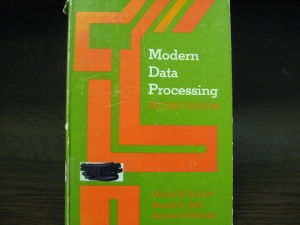In December I sponsored a contest/giveaway for books that I was weeding from my personal collection. As part of the entry form, entrants gave their advice for weeding personal libraries. Their suggestions spurred me on as I packed up seven boxes of books to donate to Goodwill. I asked permission to share their sage advice here with you.
I’ve categorized their advice into Making Decisions, What to do with Weeded Books, and Confessions of a Bibliophile.
Making Decisions
Betsy Long, librarian at Dolby’s Mill Elementary School in Lugoff, South Carolina: “Is it useful, enjoyable, and intact? If you can answer no to any one of these questions, toss it!”
Carolyn Foote, librarian at Westlake High School in Austin, Texas: “Books I didn’t love [as I was weeding] should go. Ones I might refer to again stay.”
Linda Dierks, librarian at East Union Elementary School in Carver, Minnesota: “I try to keep books I believe I will read again. If that fails for me, I ask myself if I would ever share it with a friend or someday give it to a grandchild.”
Charlotte Bryant’s outlook on weeding is influenced by her life experiences: “When your children are 27 and 25, it’s time to give away the books on parenting. Neither of my sons is married and I had a shelf full of books on infant to toddler child development books. So, as we grow as individuals, it may be a good idea to share our books from earlier times inside of keeping them on a shelf in the hall.”
Melissa Nicholson, 5th grade teacher, shares, “If you haven’t touched it in 10 years, it may be time to let it go!”
Michelle Chase, media specialist, says, “Damaged and paperbacks go!”
What to Do with Weeded Books
Pat Hensley, an adjunct instructor at Furman University in Greenville, South Carolina and retired special education teacher, keeps it short and sweet: “Donate books to others who can not afford them.”
Karen Hoover, another library media specialist, shares, “Donate to Friends of the Library booksales – and then try not to buy them again.”
Confessions of a Bibliophile
Finally, my good friend Heather Loy, media specialist at Wagener-Salley High School in Wagener, South Carolina, shares, “Keepers are ones I re-read often or have sentimental value. Discards are ones I purchased but haven’t read in 5 years (yes, had a bunch in this category). Ones that I knew ‘I’d never re-read [go]. A bunch I just got rid of were ones I started the first two/three chapters and it didn’t grab me and demand I finish it – regardless of if it’s a favorite author of mine. My time is limited, if it takes that long to get into a book it’s not worth it. And last, I had a bunch of YA, picturebooks, and children’s titles that I took into my school library. While they are no longer “mine” I can still enjoy them as well as share them with my ‘kids.'”
Image attribution:






